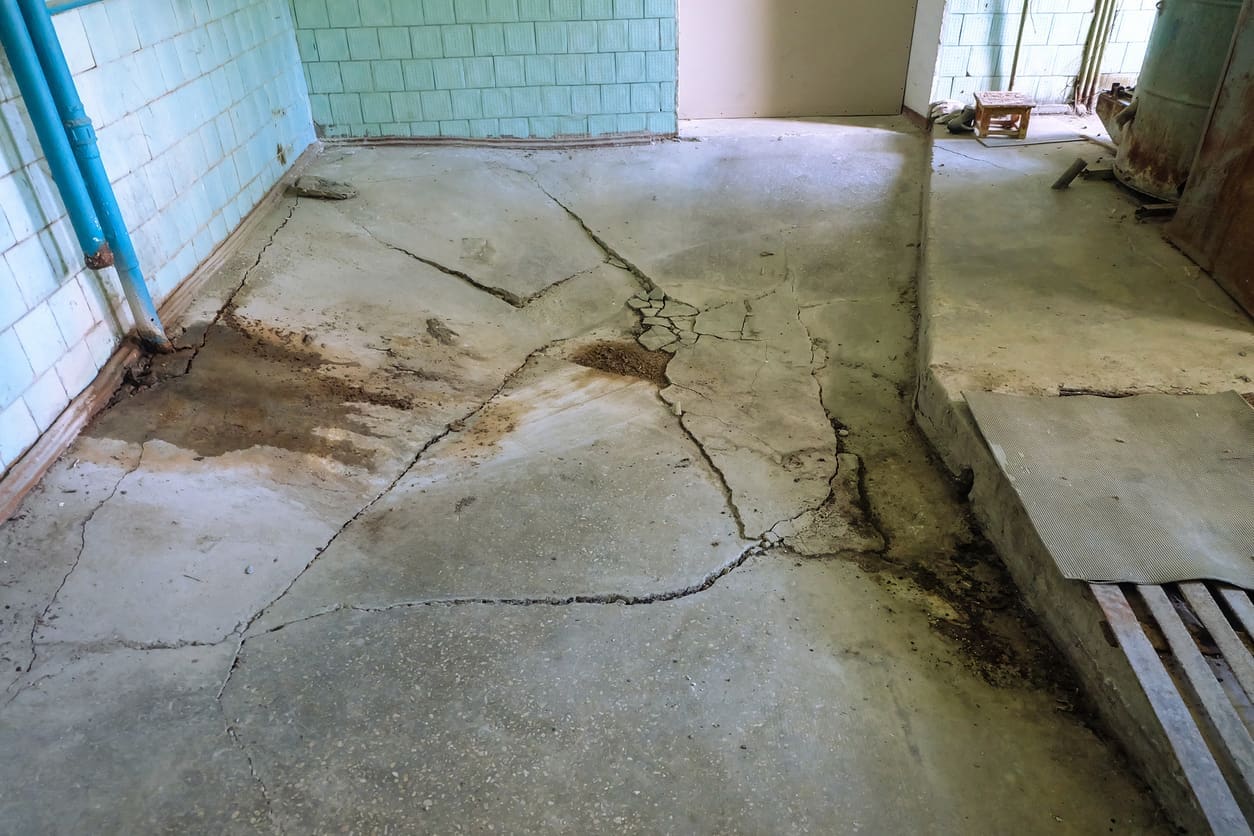Resources
Top Causes of Basement Floor Cracks

Basement floor cracks are a common concern for homeowners, signaling potential problems that can affect the integrity and safety of the home’s foundation. Understanding the causes of these cracks is essential for maintaining a healthy basement environment and ensuring the structural stability of your home. In this blog post, we’ll explore the top causes of basement floor cracks and provide insights on how to address them effectively.
1. Natural Settlement
One of the most common reasons for cracks in basement floors is natural settlement. As a house ages, it gradually settles into the soil. This process can cause minor movements in the home’s foundation, leading to the formation of cracks. Although normal cracks in basement floors resulting from settlement are typically thin and do not indicate severe structural damage, it’s important to monitor them to ensure they don’t widen over time.
2. Hydrostatic Pressure
Hydrostatic pressure occurs when water accumulates in the soil around the foundation of your home. This build-up of moisture can create significant pressure against the basement walls and floor, leading to cracks in the basement floor. These cracks are often more severe and may start at the wall-floor joint and extend across the floor, indicating a more pressing issue that requires attention.
3. Concrete Shrinkage
During the curing process, concrete tends to shrink slightly as it loses moisture. This natural characteristic of concrete can lead to the formation of small cracks in the basement floor. These shrinkage cracks are usually fine and do not pose a structural threat, but they can be entry points for moisture if not properly sealed.
4. Poor Construction Practices
Inadequate construction practices can also lead to basement floor cracks. If the concrete mix was incorrect or if the soil was not properly compacted before pouring the foundation, the likelihood of cracking increases. These types of cracks can vary in size and severity, depending on the extent of the construction faults.
5. Expansive Soil
Soil composition can greatly influence the health of your basement floor. Expansive soils, such as clay, swell when they absorb water and shrink as they dry out, leading to a cyclical process that can exert undue stress on your basement floor. Over time, this constant movement can cause significant cracked basement floors, requiring more comprehensive solutions to stabilize the underlying soil.
6. Frost Heave
In colder climates, frost heave can be a problem. This occurs when the ground freezes and lifts up, which can then push the basement floor upwards, resulting in cracks. This type of cracking is more prevalent in regions that experience severe winter conditions and can be mitigated by improving drainage and insulation around the foundation.
How to Fix Cracks in Basement Floor
Fixing cracks in the basement floor involves several steps, depending on the severity and cause of the cracks:
- Sealing Minor Cracks: For small shrinkage or settlement cracks, use a concrete sealant or epoxy injections to fill the gaps. This prevents water from seeping through and exacerbating the problem.
- Addressing Hydrostatic Pressure: Installing a perimeter drain system, adjusting the slope of the landscape, or waterproofing the exterior walls can help alleviate hydrostatic pressure and prevent further cracking.
- Repairing Major Structural Cracks: Larger cracks, especially those caused by poor construction practices or expansive soils, may require the intervention of a professional. Techniques such as slabjacking or underpinning can be used to lift or stabilize the foundation.
Monitoring Your Basement Floor
Regular monitoring of your basement is crucial. Look for changes in the size or number of cracks, and pay attention to any signs of water infiltration or worsening structural issues. Early detection can prevent minor problems from becoming major repairs.
Conclusion
Understanding the various causes of basement floor cracks is key to maintaining the health and safety of your basement. Whether it’s due to natural settlement, hydrostatic pressure, or construction issues, identifying the root cause is the first step towards effective treatment.
For homeowners facing any concerns about how to fix cracks in basement floor or needing expert advice on basement waterproofing, Michigan Basements is here to help. Our team of experienced professionals is equipped to handle all your basement waterproofing needs, ensuring your home remains safe and dry. Don’t let basement floor cracks threaten your home’s foundation—contact Michigan Basements today for a consultation and the best in basement repair solutions.


